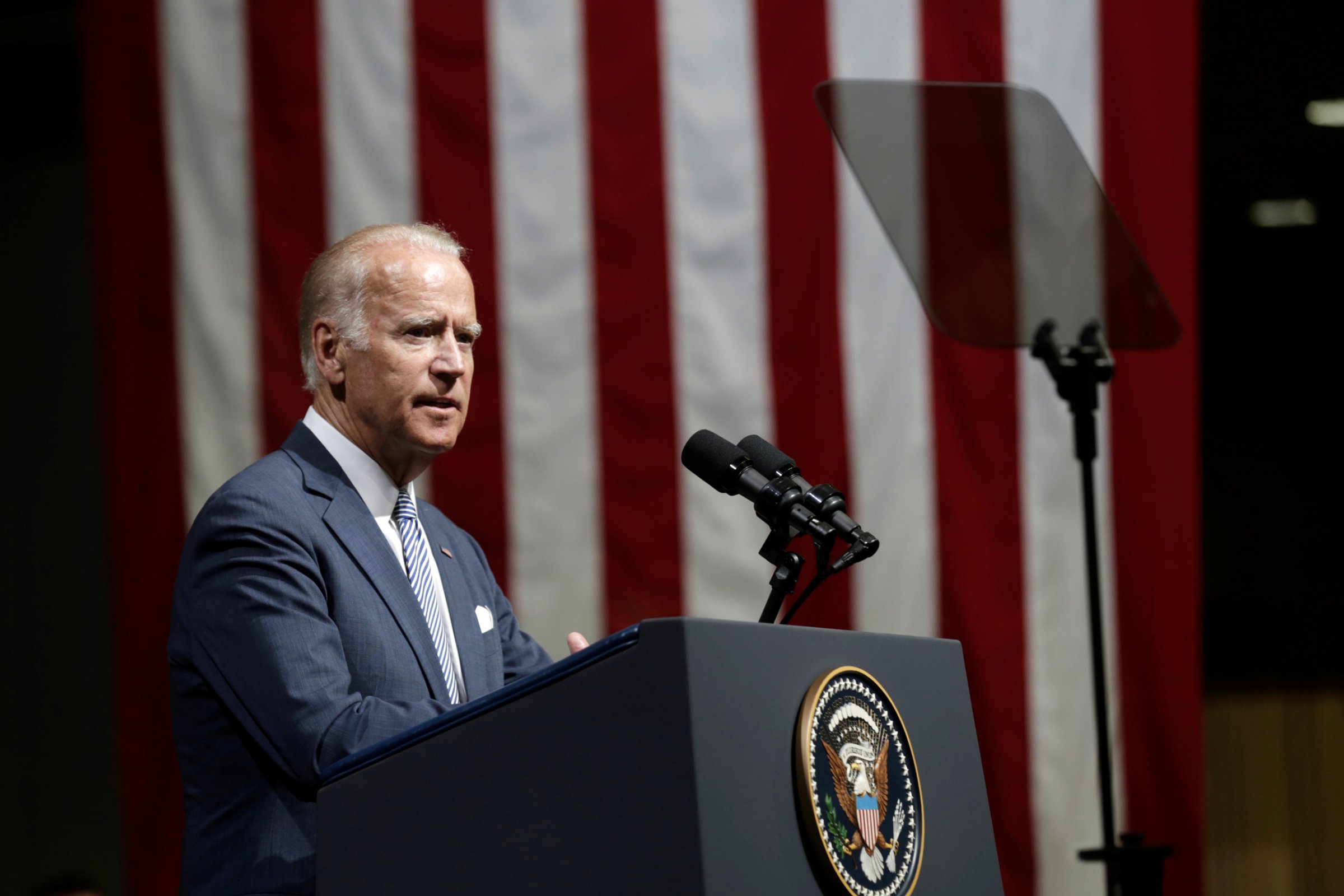
Every day, thousands of Americans hear the dreaded “c word” from their doctor. I know the fear and the numbness that sets in with the cancer of a loved one.
What happens next can make the difference between life and death. If there’s a treatment that can help, there’s hope. But for some people, hope is a clinical trial that will ultimately determine whether a new therapy can slow or stop their cancer.
Clinical trials are essential for developing new and more effective cancer diagnostics and treatments. Every cancer treatment used today required a clinical trial in order to be approved. But right now, less than 5% of cancer patients enroll in a clinical trial, often because patients and doctors don’t know what trials are available.
We can do better—and we are.
Friday, as part of the Cancer Moonshot that President Obama asked me to lead, we’re announcing new steps to help cancer patients and their doctors search for and find the right clinical trial.
Every day, we search through complex information without even thinking about it. We book airline tickets, rental cars and hotel rooms from hundreds of choices in a matter of minutes. We select movies, music and books online and never give it a second thought. We might even find a place to live through a simple online search.
With that in mind, we asked our country’s Presidential Innovation Fellows—some of the brightest technology minds in the world—to partner with the National Cancer Institute to design a new, patient-friendly search system for clinical trials that would be as easy to use as a travel site. The result is Trials.Cancer.gov, an easy-to-search database that contains detailed information on thousands of cancer trials.
Anyone can search this site using real words—rather than medical jargon—to find a list of trials that could be right for them or their loved ones. The underlying data will be available for app developers and patient groups to create even more tailored resources for patients. For example, a local hospital could use the data to create a search tool specific to their area just as technology developers create applications to help you find restaurants, grocery stores and movies in your neighborhood.
Building on this progress, the National Institutes of Health is announcing its commitment to making its database of all clinical trials—representing research across all 50 states and 192 countries—easier to use to make sure that patients, regardless of their disease, have the opportunity to participate in clinical trial research.
The Food and Drug Administration is also announcing that it will bring together clinical researchers to design smarter, more efficient trials for patients. For example, by expanding the eligibility criteria for a trial, we can enroll a more diverse group of patients and gather better information on how the experimental drug affects different populations. By tapping into prior clinical trial data for studies on the same disease, we can minimize the number of participants needed for a new trial, and speed up the time it takes to start the study.
Finally, the Department of Health and Human Services is announcing a policy that ensures that important information about clinical trials is shared with the public, and that there are real penalties for failing to report and share information. Right now, a lot of researchers don’t share information gathered from clinical trials—whether the outcomes are good or bad. But with the step we’re taking today, researchers have to share these results. More access to data means faster discoveries for researchers and more informed decisions for patients.
Together, these steps will improve the safety, accessibility and impact of our clinical research system. They will help patients today and help researchers all over the world in their quests to find new cures. And they come at a true inflection point in our fight against cancer.
The goal of the White House Cancer Moonshot is to end the war on cancer, not to start a new one. When President Nixon declared War on Cancer in 1971, the nation had no army, no weapons, and no strategy capable of defeating cancer in all its many forms.
Now, after decades of funding research, training scientists and doctors, treating millions of patients, investing in new genomic and information technologies, and after today’s improvements to our clinical trial system, this generation can end cancer as we know it.
It won’t be easy. But we can do this—for the loved ones we’ve lost and for the ones we can save. So that the patient in the room, who hears the dreaded diagnosis, can know that there is hope.
More Must-Reads from TIME
- Cybersecurity Experts Are Sounding the Alarm on DOGE
- Meet the 2025 Women of the Year
- The Harsh Truth About Disability Inclusion
- Why Do More Young Adults Have Cancer?
- Colman Domingo Leads With Radical Love
- How to Get Better at Doing Things Alone
- Michelle Zauner Stares Down the Darkness
Contact us at letters@time.com